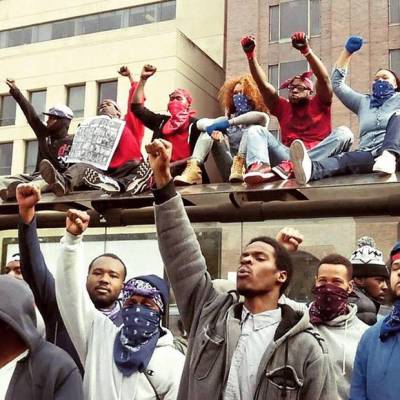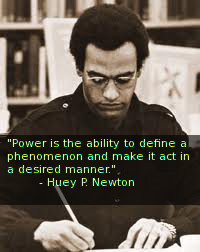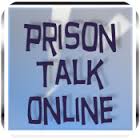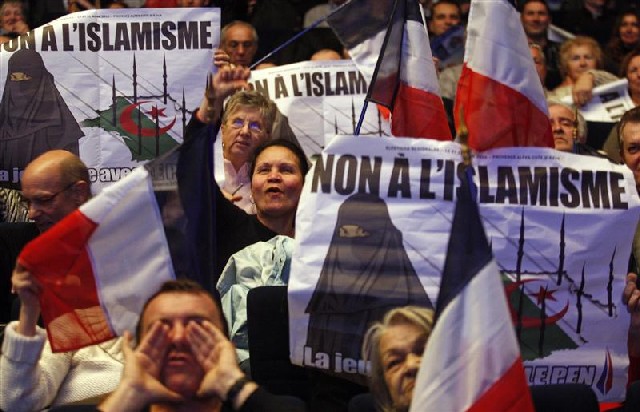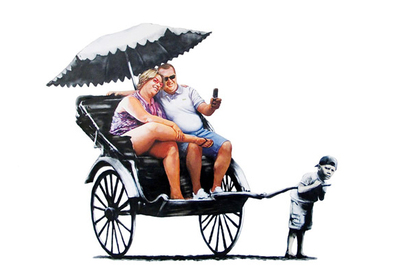
Prisoner-led Study Groups Summary
MIM(Prisons) disagrees with the organizational model of a single ideological leader (or privileged clique) providing all the instructions and theory for its membership, with the masses submitting to this guidance. This is part of why we are an anonymous organization – to help people overcome the cultural tendency of hero worship. We want everyone to take the ideological development of our movement into their own hands. As we’ve seen countless times throughout history, raising everyone’s political consciousness, as the Chinese Communist Party did under Mao, is essential to ensuring that our revolutionary movement is not usurped by our enemies or our mistakes.
To this end, we run correspondence study courses, and we encourage prisoners to run their own study groups where they’re at. Malcolm X, George Jackson, Stanley Tookie Williams, and countless other leaders developed their revolutionary analysis using their time behind bars in U.$. prisons. We follow their example and aim to push forward the political development of all U.$. prisoners; supporting prisoner-led study groups (SGs) is one way we do this.
We help support over 30 SGs in 16 states and the Federal system. Since the SGs are prisoner-run and led, we primarily provide support by sending study materials, including books, magazines, newspapers and study packs. Some of the study packs are collections of essays or source material on a particular topic, and others are questions that go with a magazine or book. With this issue of ULK and our letters to SG leaders, we also aim to provide tactical guidance and suggestions.
In February we sent out a questionnaire to get a better sense of how these SGs are run, their scope, their successes, challenges and needs. About one-third of the SGs we support responded, and here we summarize what we learned.
The number of participants ranges between 1 and 25 people, and most
groups have less than 10 regular participants. Some groups are
single-nation, but most are mixed-nation, with a mixture of lumpen
organization (LO) and ex-LO membership. We see SGs as a good place for
building the United Front for Peace in Prisons through practice. One
respondent told us:
“The three core members have all had gang affiliations in the past. The two brothers were in the Gangster Disciples or Vice Lords, and the Chicano was in the Latin Kings. But behind bars we have found out who the real enemy is: the U.$. racist imperialist oppressor pigs who run this joint. So we have put our racial differences and gang affiliations aside to fight our common enemy.”
The average time an SG has been together is 2 years, with a range of 2.5 months to 6 years. Most go through study material at similar rates: either one ULK per week, a few chapters of a book every two weeks, or a magazine/book per month. The SGs that have been going the longest reported that individual members teach what they are familiar with, or have assigned areas to become expert. Other groups report that one persyn or a core group will lead the entire study.
SGs have a wide range of structure. The structure of your group should be based on the conditions where you’re at, but it should be a universal goal to get a variety of participants engaging in leading the group. Raising the leadership skills of the participants is one way to raise their political level. And since people are moved around all the time, a follower in one SG might need to become the leader in a different facility. If they already have some practice generating study questions, acquiring reading material, and recruiting participants, then the new SG is more likely to be successful. In this way we can use a disruption, such as transfers, to our advantage.
The frequency and reliability of meeting to go over study materials also varies widely. For groups who are in different facilities, or who are in isolation, they “meet” by passing lit and sharing essays they write analyzing the reading material. Most groups reported they meet once a week, some 3 or 5 days a week, and one group said they meet daily. Some reported they meet creatively under the guise of religious services or a tutoring program.
Challenges
Of course one huge barrier to SGs and revolutionary development generally is literacy – your ability to read and write. We know that a significant portion of prisoners are illiterate. Most of our SGs reported they do not spend much energy teaching literacy, and most participants have GEDs or higher. One group even reported that a GED is a minimum requirement to participate. With the abhorrent lack of programming in U.$. prisons, the responsibility of teaching literacy rests primarily on prisoners themselves – each one teach one.
Challenges reported include:
-
Imprisonment problems: infiltration, SHU time, validation
-
Study material confiscated/censored
-
Insufficient study material
-
Lumpen problems: bourgeois politics, punctuality/discipline
“Imprisonment problems” will always affect our SGs just because of the fact that they are running inside prisons. But these issues can be addressed somewhat by having good security practices. At least one SG recruits participants by being blatant and open about its politics, receiving criticism from other prisoners (which they then engage through discussion) but not repression from staff (at least not yet). In our limited experience, this is an uncommon scenario, and definitely varies by facility and state. We are creating a security study pack to add to our list of available study materials, so if you have any recommendations of security practices that have worked for your group, please share them with us.
“Lumpen problems” are those which are prominent among the lumpen class as a whole, which we need to address on a mass scale. We can start working on these problems within our SGs. The institutionalization of the daily routine in prisons leads many to rely on others (their captors) to determine what they do at any given moment. This prevents us from developing the necessary skills of time management and self-discipline. When moved to a less structured environment (e.g, from SHU to general population, or from prison to the outside) it is difficult to stay committed to projects and it can be as if one is just following the wind. Encouraging self-discipline with work reports and planning in advance is one way to tackle this problem.
Study material being censored and confiscated can possibly be dealt with using the appeal and grievance process, but we also need to assume repression will always come from our oppressor whenever we try to educate ourselves. Since you can’t rely on having articles or notes to refer back to, try to read the material multiple times before passing it on. Writing a summary or analysis on the material, even if it’s just a few sentences reflecting on an article in ULK, will help you remember it better and think about it more critically. And discussing your reflections with another comrade if possible will help you develop your overall political analysis. So even if the material is stomped on and torn up and “lost” forever, you will have done your best to hold on to it and can hopefully teach those principles to others even without the written words to refer to.
If the main problem in your SG is having material to study, you’re in luck, because that’s probably the easiest problem to solve! Barring complete censorship of our materials, MIM Distributors can send you literature on a wide range of topics. Send us reports on what questions are coming up in your SG, what conclusions you are drawing from the material you are studying, and how those conclusions can be applied to the struggles in your prison, and we’ll hook you up. Encourage your SG participants to sign up for ULK and send us work-trades for lit, such as articles, art, or poetry for the newsletter. You can even pool together your financial resources to purchase books outright.
One of our goals coming from our annual congress is to be supporting 50 SGs across the United $nakes by this time next year. Since the initiative of our subscribers (YOU!) is what determines how many SGs we can support, we are trying to up the support on our end by addressing some of the main challenges identified in responses to our questionnaire. Please share experiences with us that others might be able to apply to their own SGs.
We hope with this issue of ULK to spark some inspiration among our readers to take their usual “I read and love this newsletter, and pass it on!” to step up and sit down with their fellow captives to study. It is not only important for our own immediate tasks of building unity and increasing our knowledge, but it is important so that our actions will have the greatest impact on liberating the majority of the world’s people.










